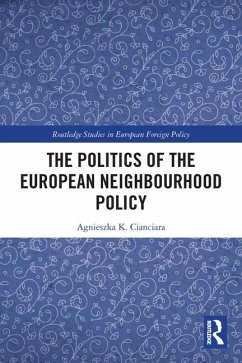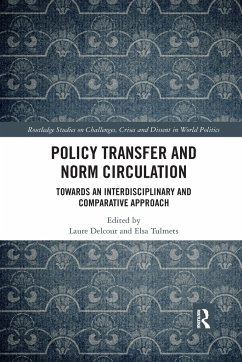
The Routledge Handbook on the European Neighbourhood Policy
Versandkostenfrei!
Versandfertig in 1-2 Wochen
61,99 €
inkl. MwSt.
Weitere Ausgaben:

PAYBACK Punkte
31 °P sammeln!
The handbook provides a comprehensive overview of the EUâ s most important foreign policy instrument, provided by leading experts in the field. It covers the most important themes, developments and dynamics in the EUâ s neighbourhood policy framework through a series of cutting-edge contributions.














